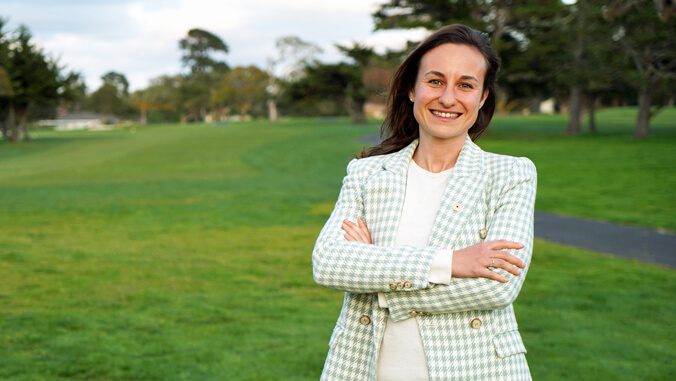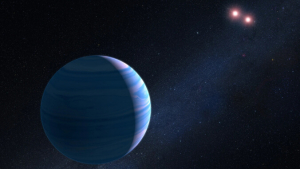
The University of Hawaiʻi Institute for Astronomy (IfA) will soon welcome Nour Skaf, a rising star in the field of extrasolar planet research whose work has earned international acclaim. Recently named one of eight notable 51 Pegasi b Fellows by the Heising-Simons Foundation, Skaf will bring to UH her expertise in exoplanet instrumentation.
At IfA, Skaf will apply her skills in correcting optical distortions that obscure astronomical images of distant planets, thereby enhancing observations made with telescopes on Maunakea. Her work will contribute to advancing exoplanet research and refining techniques that bring us closer to understanding worlds beyond the solar system.
“My goal as a scientist is to be able to image and characterize planets closer to their stars, and especially with the next generation of telescopes, image and characterize Earth-like planets around nearby stars,” said Skaf.
Sharpening exoplanet imaging

In 2023, Skaf earned a PhD from the Observatoire de Paris, where she helped develop a software algorithm called DrWHO that continually tracks and corrects optical disturbances that blur earthbound views of the cosmos, aiming to improve the ability to directly image planets around other stars, known as exoplanets.
As a 51 Pegasi b Fellow, Skaf will refine the DrWHO algorithm and work toward developing a new mapping technique to predict the ultra-fast flickering of stellar images caused by atmospheric turbulence. This advancement will help enable real-time corrections, significantly improving the clarity and precision of exoplanet imaging.
Skaf will collaborate with IfA scientists, including a research team led by IfA astronomer Michael Bottom, who was recently awarded $4 million from NASA to develop a new generation of ultra-sensitive sensors needed to observe distant planets and their atmospheres.
“Nour has done first-rate work on adaptive optics algorithms, which we’ll be able to implement on some of the most powerful telescopes in the world, here in Hawaiʻi,” said Bottom. “This will benefit many astronomers doing a wide array of science. We’re really excited to have her as part of our community.”
Early career scientists
Skaf is one of the Heising-Simons Foundation’s new class of 51 Pegasi b Fellows, early career scientists focused on advancing our understanding of exoplanets, solar system science, planet formation and evolution, planetary atmospheres, protoplanetary disks, and other closely related research areas. The fellowship has a 3-year term and is funded by a $450,000 grant to UH.
“The 51 Pegasi b Fellowship is a great program, as it helps attract talented scientists like Nour to join us. The energy and ideas from outstanding young researchers are a wonderful addition to our astronomy program, especially given our strong track record in exoplanet science,” said IfA faculty member Michael Liu, who serves as the UH coordinator for this fellowship. Liu also leads IfA’s TeachAstro summer program for high school teachers, which is funded by the Heising-Simons Foundation, as well.

